What's New
Displaying results 2621 - 2630 of 4914
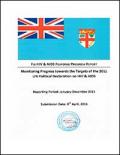
Resource | Publications,
This country report will enable readers to learn of the collective successes that Fiji has experienced with the HIV response particularly in 2015. Even though progress has been achieved globally, regionally and locally in stemming the tide of the HIV transmission and AIDS related death, there is still a need to multiply our investment and commitment to ensure that our response is sustained producing tangible results and it also has a high impact.
In certain parts of the world, the end of HIV is already in sight. Fiji continues to strengthen its response with the World AIDS Day *WAD+ theme “AIDS WILL LOSE”, which has been in place for the past 2 years following the endorsement of the theme by the HIV/AIDS Board. The theme certainly reminds us that there is no room for complacency and this is not a time to decelerate our efforts. Let us continue to strengthen our bond and our bid to accelerate progress towards an AIDS-free generation.

Resource | Publications,
The Ministry of Health continue to support the global ‘getting to zero targets’ with zero new infections, zero discrimination and zero AIDS related deaths, and the global obligation of attaining universal access to HIV prevention, treatment care and support. Hence, the Cook Islands main emphasis is on prevention, ensuring that all pregnant women are tested for HIV, and making sure full access to ART. This also aligns perfectly with the Ministry of Health’s mission statement that is “to provide accessible, affordable and equitable health services of the highest quality, by and for all in order to improve the health status of people in the Cook Islands” The reporting process also provided an opportunity to evaluate the data tools and storage processes in place.

Resource | Publications,
This GARPR report developed by the Communicable Disease Section Team at the National Department of Health and Social Affairs and the report was approved by the Secretary of Health and Social Affairs on April 8, 2016. The technical support for the write up is provided from the UNAIDS Office in Suva, Fiji.

Resource | Publications,
Kiribati is considered a low-HIV-prevalence country with 60 (35 males 25 females) cumulative cases since the first reported case in 1991. Of this cumulative number, 28 had died (15 males and 13 females), 1 migrated overseas, 8 (age range: 5-46 years) are currently on ARV treatments. The remaining 23 have been lost to follow-up even with efforts to find them for almost 10 years. To date, it unclear how many of these lost to follow-up cases are still alive and how many have died of AIDS related illnesses. During the reporting period, 3 (2 children and 1 adult) new HIV cases were confirmed.
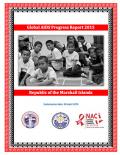
Resource | Publications,
The Republic of the Marshall Islands is a signatory to the UN Political Declaration on HIV and AIDS in 2011. This declaration aims to eliminate HIV throughout the world, and has commitments to prevention, treatment, elimination of stigma and discrimination and supporting the human rights of people living with HIV or perceived to be at high risk.
The Marshall Islands response is coordinated by the National Advisory Committee on HIV, STIs and Tuberculosis (National Advisory Committee), which was appointed in 2011. The Terms of Reference permit up to 15 members, with seven from civil society organizations.
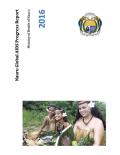
Resource | Publications,
The 2016 National Report contains 71 indicators recommended for all UN Member States. Nauru does not provide data on some indicators in the 2016 National Report, as 6 indicators do not correspond to the epidemic currently registered in the country and are not relevant for Nauru, and there is no data collection mechanism for others.

Resource | Publications,
The first case of HIV recorded in Samoa was in 1990. Since then, 24 cumulative cases have been reported. Currently there are 11 living cases of HIV. Though this is a low prevalence, low testing rates (4-5%) indicate that there are many more cases likely undetected. The high prevalence of other STI’s (Chlamydia 26% in 2015) are also a concern and pose risks for increasing HIV transmission.

Resource | Publications,
This report on the progress made in the Solomon Islands AIDS response between January and December 2015 and it highlights the achievements, challenges and lessons learnt in the Solomon Islands AIDS response in the thematic areas of Prevention, Treatment, Care and Support as well as Health Systems Strengthening.
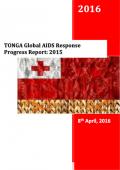
Resource | Publications,
Tonga has been a member of the United Nation since 1999. In 2011, Tonga together with 189 other UN Member States signed the Political Declaration of Commitment on HIV/AIDS and since then committed to work towards achieving the Targets set under this Agreement. The Millennium Development Goals final report submitted in 2015 indicated that Tonga’s progress towards the Targets is very strong due to robust commitment from State and Stakeholders. Tonga continues to join the world to make zero new HIV infections, zero discrimination and zero AIDS-related deaths a global reality.
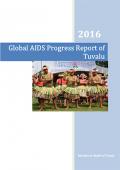
Resource | Publications,
This report was coordinated by the Tuvalu Department of Public Health which is leading the HIV/AIDS program response in Tuvalu. The data and analyses presented in this report was drawn from a diverse range of sources including (but not limited to): Department of Public Health and the Tuvalu Princess Margaret Hospital, Laboratory and STI Clinic administrative and reporting data; Tuvalu’s Demographic Health Survey 2007 and key informant interviews.





